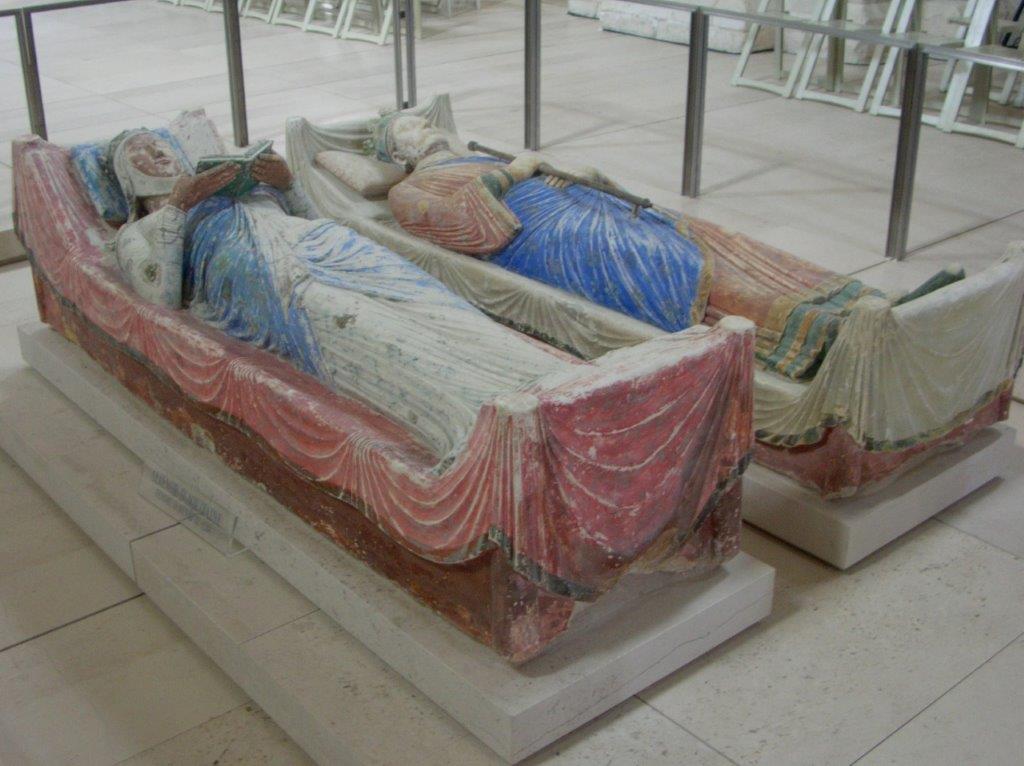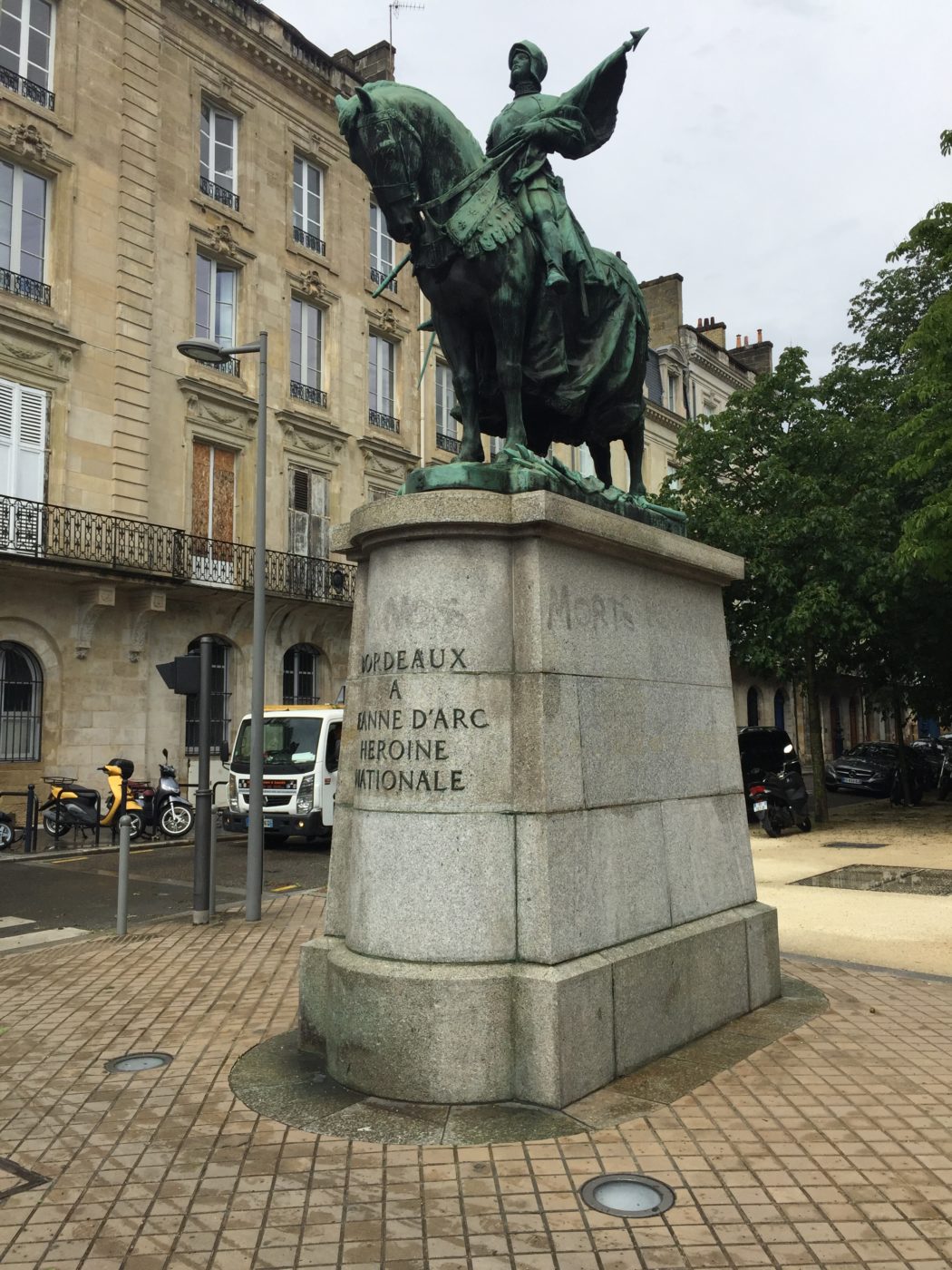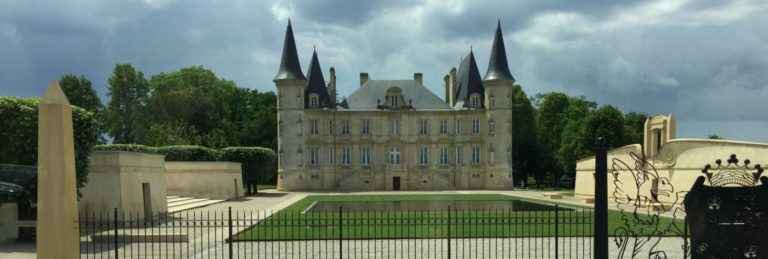This is a cruise about wine. For seven days, you’ll be cruising, almost drifting, among some of the most famous vineyards in the world. There is celebrated tradition, intense rivalry, and collegial propriety in this famous “appellation”. It’s all about the wine.

There are plenty of other themes that might be part of an extended tour in Southwestern France. Bordeaux is the capital of the Aquitaine, whose most renown daughter, Eleanor, wife of Henri II Plantagenet, King of England, brought the Aquitaine to the marriage as her dowry in 1152 AD. Her remarkable story as a strong-willed woman in an age of medieval knights is excellently told by Amy Kelly in Eleanor of Aquitaine and the Four Kings (Harvard Paperbacks). Another recent biography is Eleanor of Aquitaine: Queen of France and England, Mother of Empires
, by Sara Cockerill.
Katherine Hepburn’s portrayal of Eleanor inThe Lion in Winter (1968) is extremely entertaining, while also being probably spot-on as a woman who could stand toe-to-toe with monarchs. It is, also, a most enjoyable way to get an appreciation for the English-French rivalry and dysfunctional royal families that have been so ever-present in European history.
That brings to mind the Hundred Years War, 1337-1453. While covering most of the French map, it was Henri’s claim to the Aquitaine that gave his successors, starting with Edward III, a base of operations from which to waste a century of resources on a pretty useless plundering of the French countryside. Ultimately, the English ran out of steam and retreated from the field, leaving France to pick up the pieces. Check out The Hundred Years’ War: A Captivating Guide to One of the Most Notable Conflicts of the Middle Ages and in European History and the Life of Joan of Arc.

The young heroine of this dark hour was Jeanne d’Arc, or Joan of Arc. She convinced French King Charles VII to have heart and to persist against the English. Charles abandoned reverent Jeanne to the English and their flaming stake in 1431. But, his persistence wore down the invaders and he was able to keep his crown. There is a magnificent equestrian statue of warrior Jeanne in Bordeaux, though, for the life of me, I do not know why. For a recent biography, see Joan of Arc: A History. Even Mark Twain has a well-regarded version, Joan of Arc
.
French religious bellicosity, Catholic vs Huguenot, (Protestant), resulted in the 1627 siege of La Rochelle, which is just north of Bordeaux. (You must cite the year, as poor La Rochelle has been subjected to numerous sieges, mostly in the name of the Catholic Church.) Though just as useless, as wars go, it did give us Alexandre Dumas’ adventure stories of the The Three Musketeers. The fourth musketeer, D’Artagnan, was a Gascon, meaning “from Gascony”, which is the French Atlantic coastal area between Bordeaux and Spain.
Athos, Porthos, and Aramis, the names roll off the tongue. One of the primary episodes of the yarn is that of the erstwhile companions taking part in the infamous siege. The cast of characters includes Louis XIII and his crafty sidekick, Cardinal Richelieu. Again, The Three Musketeers is a lighter way to catch up on that tenth-grade world history you slept through in high school.

, by Ina Caro. This is a tour of France, fashioned around the unfolding history of the nation. France pretty much developed from South to North and this tour guide through time and location is a fascinating way for Francophiles to appreciate many different regions of France and the country, as a whole.
Distractions aside, however, we must return to the main thesis of a Bordeaux River cruise, and that is wine. As announced on the awning of a wine merchant in the “Vieille Ville”, (“Old Town”), this is about “L’art du Savoir-Boire”, or the art of knowing what to drink! As the French would say, “Allons-y!” Let’s go!



